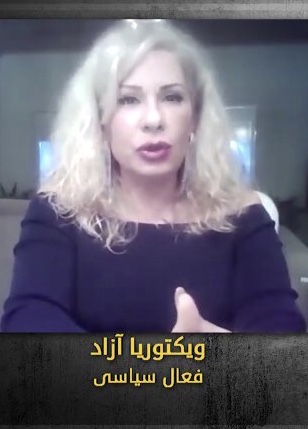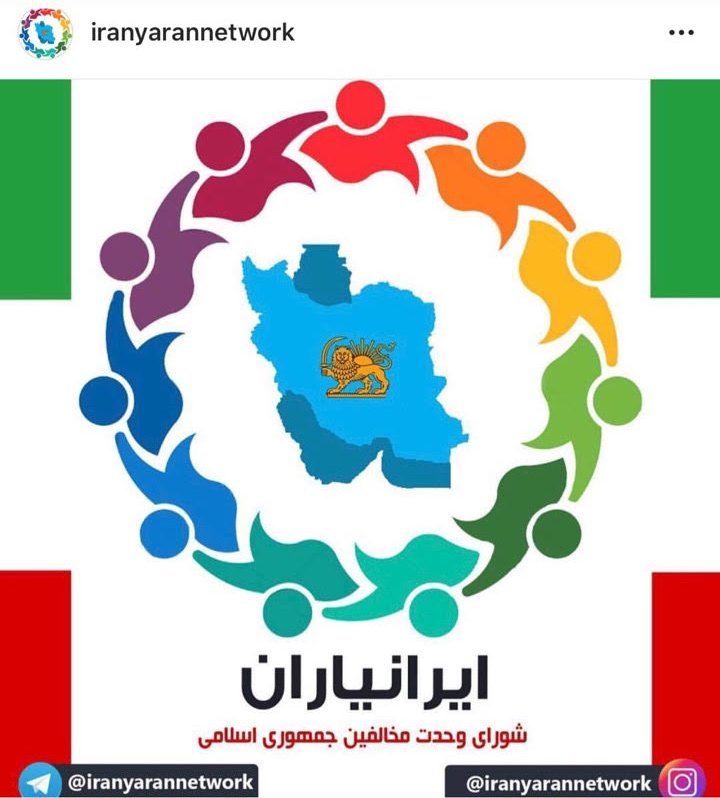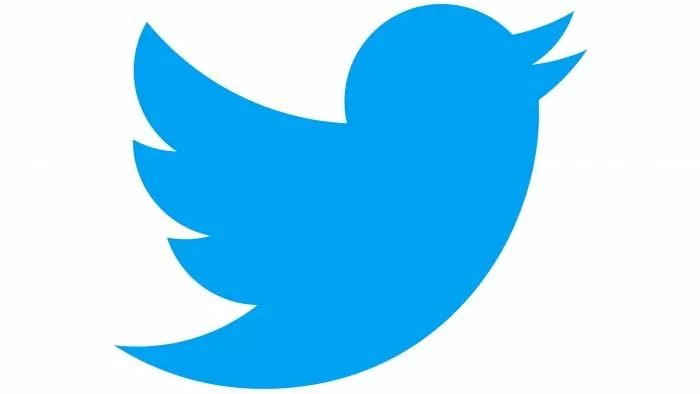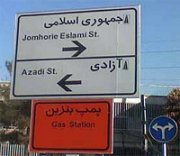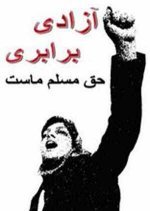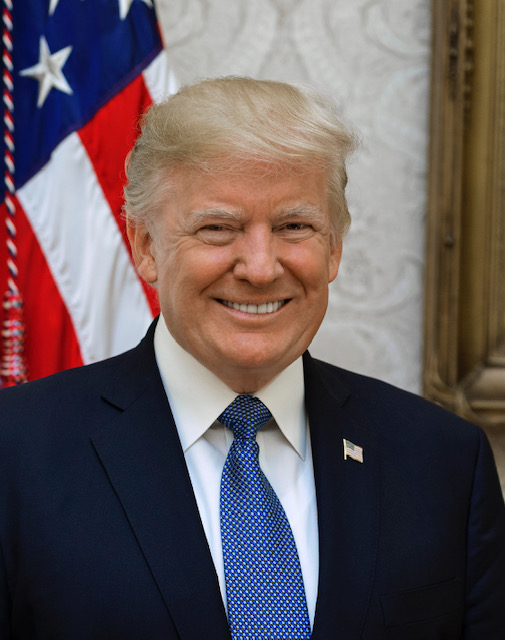
The Impact of Trump's Actions on weakening the Islamic Regime in Iran
Tuesday, November 24, 2020
By Victoria Azad, www.victoriaazad.com
Donald Trump's punitive measures against the Iranian government should be analysed in both domestic and foreign policy areas.
Trump began his fight against the Islamic Republic already with his 2016 campaign. The Iranian Chamber of Commerce, following its leader, assumed that Trump would be of good use to them, and that with his arrival, Europe would turn away from him and get closer to Iran, and as a result, the JCPOA would be maintained, which not only did not happen during Trump's presidency, but instead hundreds of European and Asian companies and banks left Iran. The reason for the withdrawal of these companies from Iran is the macroeconomic cooperation of these countries with the United States, which leads to their adherence and convergence with U.S. macroeconomic policies, and obviously, satisfying the United States is a priority for them, because western economic policies are primarily based on sustainable development and not short-term policies and temporary and baseless treatments. The amount of European economic exchanges with the United States is ten times that of Iran, so Europe, even Russia and China, respect international law on relations with the United States and take seriously the rules governing U.S. sanctions on companies that exchange economic deals with Iran.
The U.S. withdrawal from the JCPOA and the announcement of the return of its sanctions against the Islamic Republic were accompanied by a wave of withdrawals from foreign companies that had come to Iran after the nuclear deal to start their economic activities. Of course, many of these companies regretted cooperating with Iran after reaching the initial understanding. The decline in trade volumes made Iran's economy much weaker. The establishment of an anti-Zionist and anti-American ideological government is the biggest scourge of Iran's foreign policy and the Achilles' heel of this policy of hostility against Israel and the United States. Trump put his finger on this important and pivotal weaknesses and was able to inflict largely a major blow on the body of this rotten system. During these sanctions, the regime's weaknesses and inability to act in the national interests of its country weakened its national and international standing and the regime thus faced multiple crises that are unfeasible. In the early days, Trump announced that he would break the JCPOA and withdraw from the nuclear deal with the Iranian regime, which was finally implemented in 2018. Then Trump implemented a policy of maximum pressure through multi-way sanctions. By imposing broad and varied sanctions, he practically grounded the Islamic Republic. His severe political and economic sanctions reduced the regime's political and military influence in the region and pushed the Islamic Republic and the Islamic Revolutionary Guard Corps (IRGC) back into the borders. Trump placed the IRGC on the terrorist list, virtually shortening their hands from interference in the region, as well as denying the regime the possibility of investing and signing international agreements. With the addition of the IRGC to the list of terrorist groups, commercial and financial institutions, organizations and companies affiliated with the IRGC were more limited than before in dealing with it and its affiliated entities. The financing and support of terrorism by the military-economic organ of the IRGC was severely damaged. If individuals or companies would enter into financial transactions with the IRGC, they would face a serious risk of supporting terrorism, which could lead to arrest, extradition, and imprisonment, resulting in the IRGC being placed on the list of terrorist entities, creating a more serious obstacle to dealing with the Islamic Republic in Iran, and any deal could be interpreted as cooperation with the Terrorist Corps. According to the U.S. Anti-Terrorism Act, its military forces have the right to deal with brutality if necessary, since the IRGC was placed on the terrorist list. From the perspective of our country's national interests, Trump's maximum pressure on the organs of the Islamic Revolutionary Guard Corps (IRGC) is the same as pressure on the clergy system and undermines the entire regime. Although a part of the body of the Revolutionary Guards and the police force has the capacity to separate itself from the heads of these organizations and could in theory stand behind the people, this does not however mean pouring cleansing water over the entire institution and making the coup leaders a partner in the state. The plan to merge the IRGC and the army in the first paragraph of the Strategic Memorandum of Understanding (MoU) issued on February 2019 is very precise, and in the author's opinion, this demand should be emphasized and the IRGC's hand should be cut short of power and participation in the economic mafia, and this is only possible when the regime changes and in the process of change the military forces who join the people are welcomed. Another important step is to build a friendship between the Arab-countries and Israel. Based on the Islamic Republic's hostile policies with Saudi Arabia, the United Arab Emirates, Israel and the United States, Trump managed to take advantage of the potential danger of the Islamic Republic as the number one enemy of the region and its neighboring countries, making one of the greatest developments of the 21st century. He took advantage of these conditions with great sedation which led to peace between the Arab-region and Israel, a peace that had not been possible for more than 60 years. By attacking Aramco, the Iranian regime placed Saudi Arabia in a position of permanent enemy with itself and denied the possibility of any proximity to the Arab-countries. The Islamic Republic's hostile actions toward Saudi Arabia and the use of Yemenis to advance its hostile foreign policy made it easier for Trump to achieve his goals of bringing the Arab-region and Israel closer, and the world witnessed the signing of a friendship agreement and the establishment of broad security and military cooperation between Arab-region and Israel. In Syria, Lebanon and Yemen, all the costs spent on expanding the Islamic Republic's influence became virtually ineffective, and even in Syria, it suffered heavy human resources losses in the worst possible way. Iraq, once considered the backyard of the Islamic Republic, was weakened by the loss of the Islamic republic's financial and economic power due to sanctions and widespread financial corruption and revolutionary protests by the Iraqi people to the presence of the Islamic Republic in their country. The possibility of maintaining Shiite militia forces in the region was minimized and the regime's influence in Iraqi political affairs such as the Nuri al-Maliki and Haider al-Abadi era was lost, hitting the point of the Shiite crescent. On the domestic conditions, following Trump's policies, by imposing heavy sanctions on oil as the country's vital economic artery and on the conditions of industrial and agricultural backwardness, the regime's financial and logistical capacity in financing terrorism was greatly diminished, severely undermining the regime's authority in the country and the region. With the pressures of sanctions and widespread financial corruption and lack of expert and compassionate management, people's dissatisfaction with the system has increased in the strongest possible way during the life of the Islamic Republic and the bipolar reformist-fundamentalist strategy has completely lost its color in public opinion and has no longer legitimacy. It is clear that a deep rift has been created between the people and the regime. Divisions and fallout between forces within the system, whether political or military, have increased and large amounts of domestic capital have fled to Western countries. Elliott Abrams revealed in the past weeks that the U.S. government wants to impose a sanctions package against the Islamic Republic of Iran every week until its last day on January 20. Israeli sources have said the anticipated sanctions have nothing to do with Iran's nuclear program. If Joe Biden's administration however takes office it is expected that it will suspend or lift the nuclear sanctions in order to make it possible to return to the JCPOA. Therefore, the new sanctions posed by the Trump administration has specifically targeted the Iranian regime's ballistic missile program and support for terrorism and terrorist organizations, as well as human rights abuses in Iran. Donald trump's administration's maximum pressure policy against the Islamic Republic has diminished the regime's ability to support its militias in the region. However, with the administration of Joe Biden and his elected secretary of state, Anthony Blanken and National Security Advisor Jake Sullivan, the United States will return to the nuclear deal and greatly reduce the pressure on the ruling regime in Iran. I the remaining month, military conflicts are likely however not necessarily by the United States, but could be inflicted by Israel or Arab allies who all neccessary facilities to cross radars and enter the military bases of the Islamic Republic of Iran. The threats of the Islamic Republic are no longer sufficient, whilst its all the more clear that this government will not give up despite all its problems. The transfer of Iranian sociologist and researcher Ahmad Reza Jalali to solitary confinement at Rajai Shahr Prison to be put on the death row, according to a news release published on Twitter by his wife Vida Mehrannia, is the reaction of the judiciary and the Ministry of Intelligence of the Islamic Republic of Iran to the news of Israel's possible attack on the Islamic Republic. The hostage-taking and blackmailing by the regime is nothing new, using the threat of political prisoners to blackmail the world and leverage its domestic rivals to score points or ease sanctions. Unfortunately, Trump, along with his positive actions to undermine the Islamic Republic, failed to remove the Islamic regime due to the weaknesses of the country’s opposition and its people. Trump could not force a revolution instead of the Iranian people. In order to get rid of this criminal regime, the people and the opposition must decide and not wait for any foreign miracles. The unity of the Iranian people and the coalition of leaders of various opposition movements (opposition to the Islamic regime) is one of the most important strategies that can be mentioned in the present situation. Without the formation of such an alliance, the Islamic Republic will come out of its lock, except that the Iranian people has no place or voice nor in the global relations and affairs nor in the mullahs. Iran is a lactating cow and the rulers, and it’s allies are well fed, the rest are herds, and for this government, the nation of Iran and its people is worthless and nothing but a means to an end.
This article at Persian تاثیر اقدامات ترامپ در تضعیف رژیم اسلامی در ایران | KayhanLondon کیهان لندن
Victoria Azad - تاثیر اقدامات ترامپ در تضعیف رژیم اسلامی در ایران

